
If there's one supplement that promises but yet still delivers, it's creatine.
Creatine is a supplement that promises to boost your performance, but there's a debate about its "nattiness."
Is it natural, or does it fall into the category of steroids?
Let's dive in and find out.
Creatine falls under the "natty" category and isn't a steroid.
That's because your body naturally produces creatine, and taking it as a supplement doesn't introduce artificial hormones.
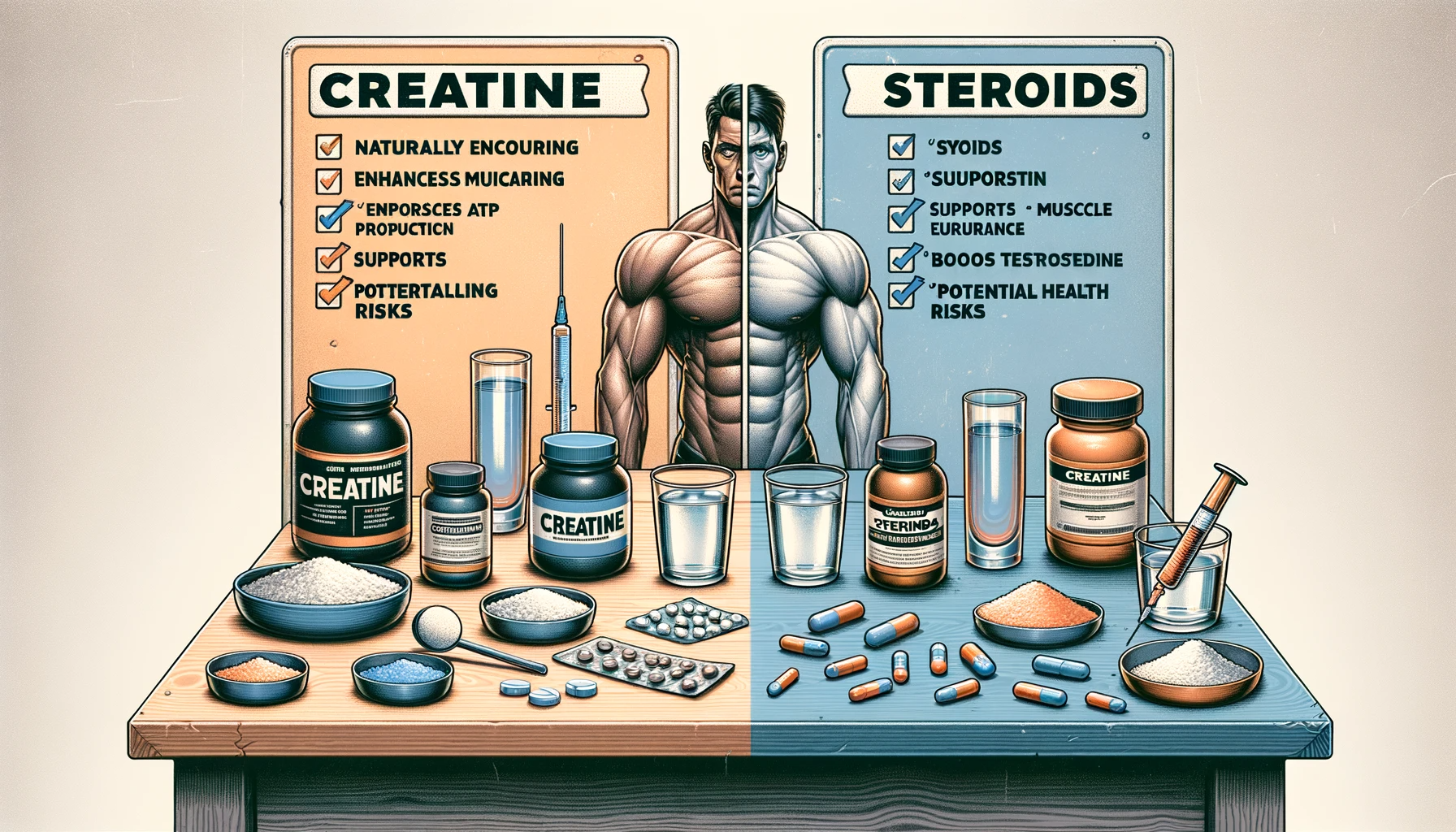
In bodybuilding, "natty" is short for natural.
It refers to athletes who don't use performance-enhancing drugs (PEDs) like anabolic steroids.
The term celebrates individual genetic potential and health.
Recommended: Are you still natty if you take pre-workout?
Steroids are a class of organic compounds with a specific molecular structure.
They include many substances, from hormones like testosterone and cortisol to certain vitamins and medications.
Unlike creatine, steroids function by entering a cell and activating specific genes, leading to the production of proteins.
This is a vastly different mechanism of action compared to creatine, which primarily functions in cellular energy metabolism.

Each of these steroids has its effects, uses, and potential side effects.
For instance, research has shown that anabolic steroids can lead to liver damage, cardiovascular issues, and even behavioral changes.
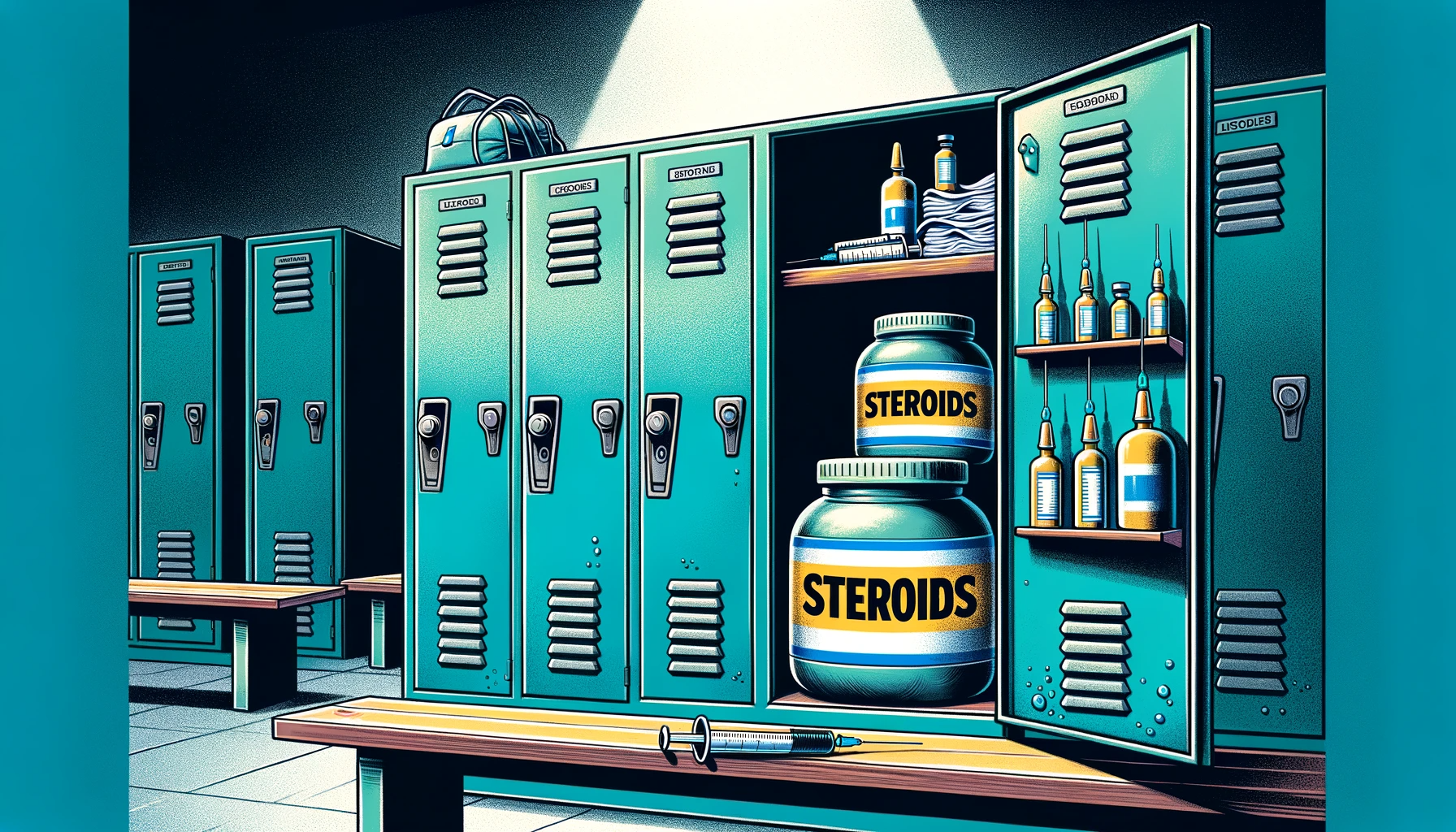
It's important to note that not all substances that enhance performance or treat medical conditions are steroids.
For example, creatine, as we've discussed, is not a steroid.
It doesn't have the hormonal structure or function that characterizes steroids.
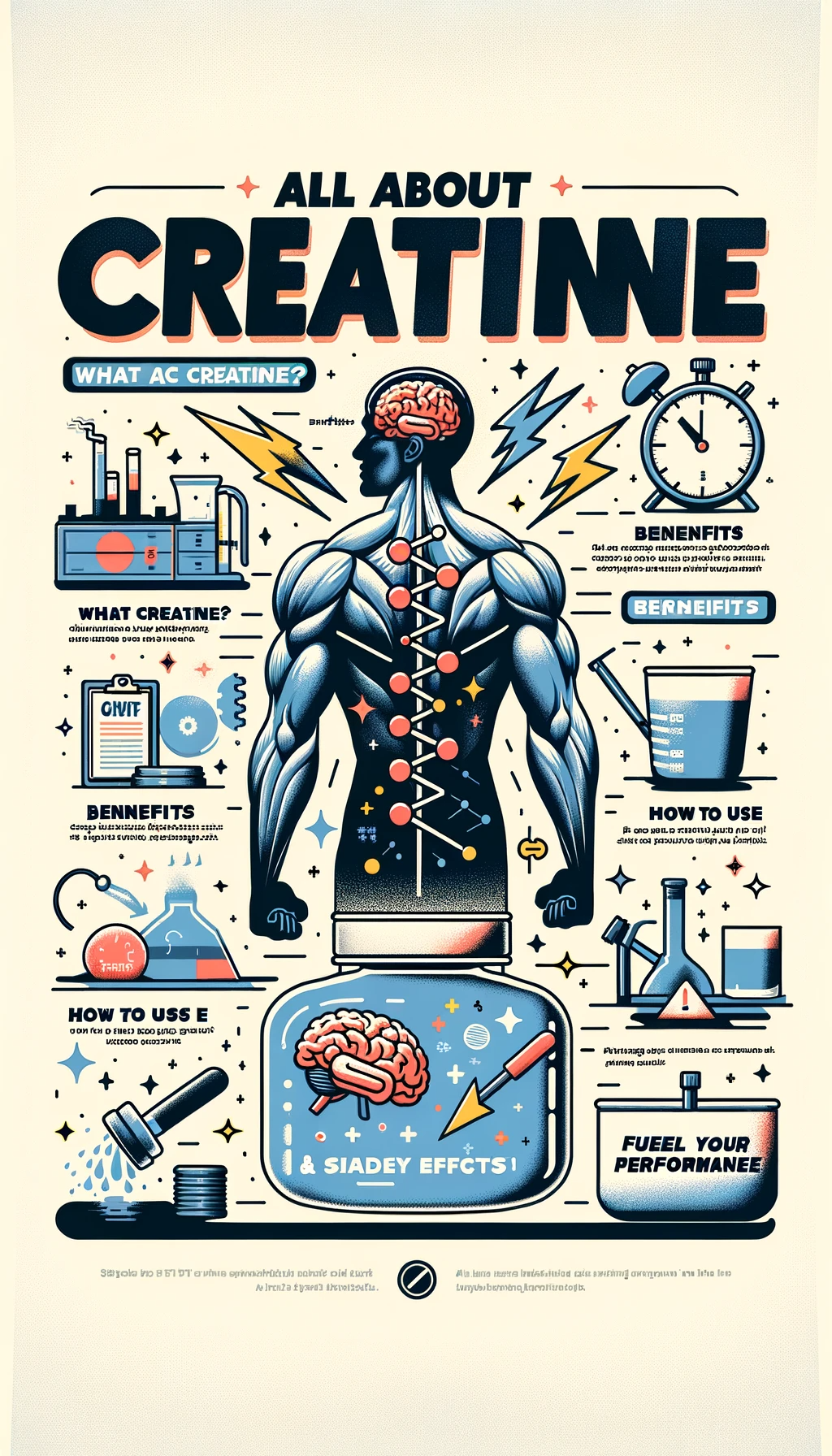
So, next time you hear someone confusing creatine with steroids, you'll know better.
Anabolic steroids are synthetic variations of the male sex hormone testosterone.
They're designed to mimic the muscle-building and performance-enhancing effects of this hormone.
Unlike other types of steroids, such as corticosteroids, anabolic steroids are primarily used for their anabolic (tissue-building) properties.
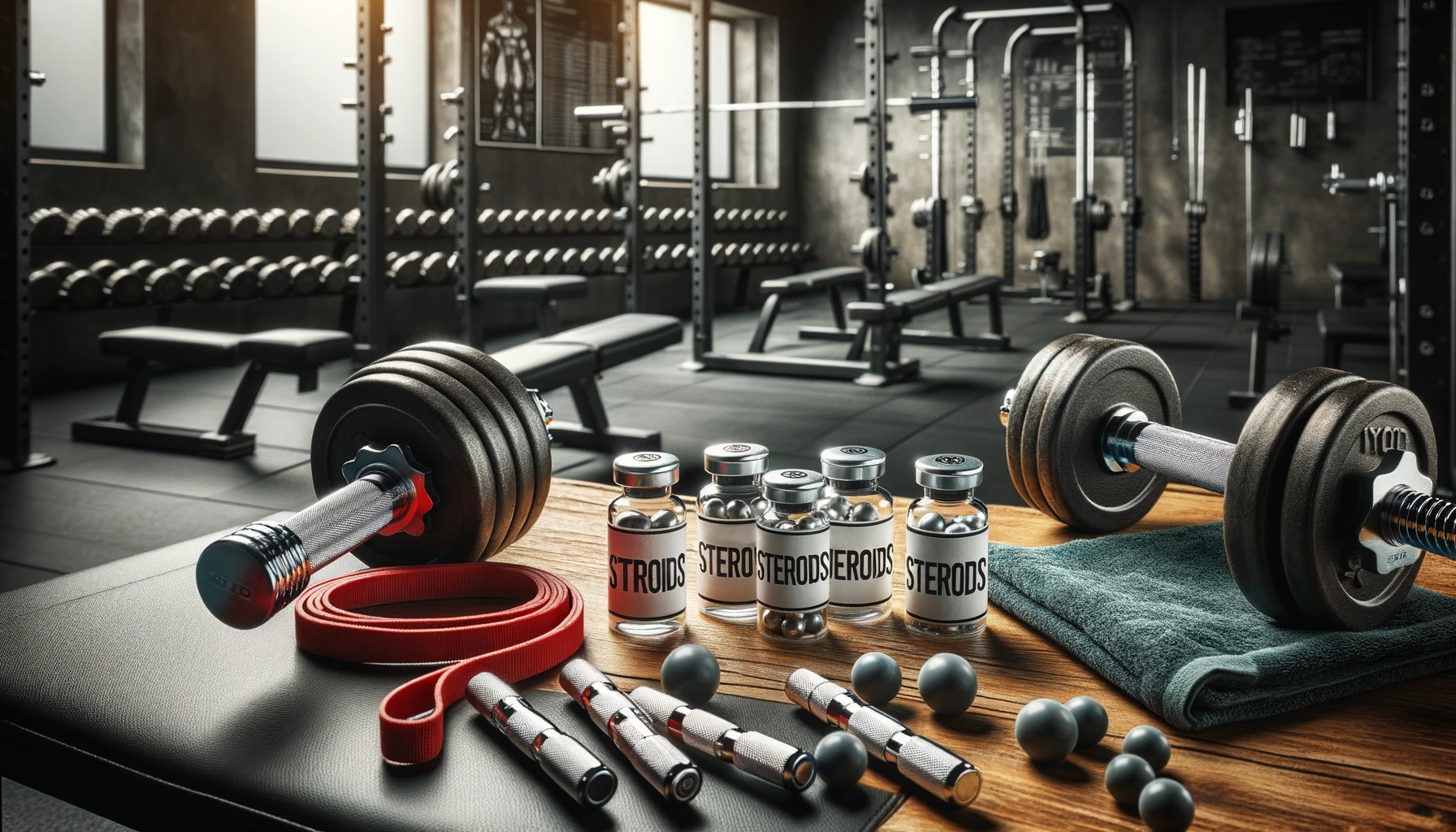
Each of these steroids has its benefits, risks, and side effects.
For example, research has shown that the use of anabolic steroids can lead to liver toxicity, cardiovascular issues, and even behavioral changes.
It's crucial to note that the use of anabolic steroids without a prescription is illegal in many countries.
They can also lead to severe health issues such as liver damage, heart problems, and even psychological effects like aggression and mood swings.
So, while anabolic steroids can offer quick results in terms of muscle gain and performance enhancement, they come with a hefty price tag concerning your health and legal standing.
Creatine is one of the most researched sports supplements out there.
It's naturally produced in the human body and plays a vital role in energy metabolism.
Supplementing with creatine is known to enhance strength, increase lean body mass, and improve exercise performance.
However, it's important to note that these benefits augment what your body naturally does.
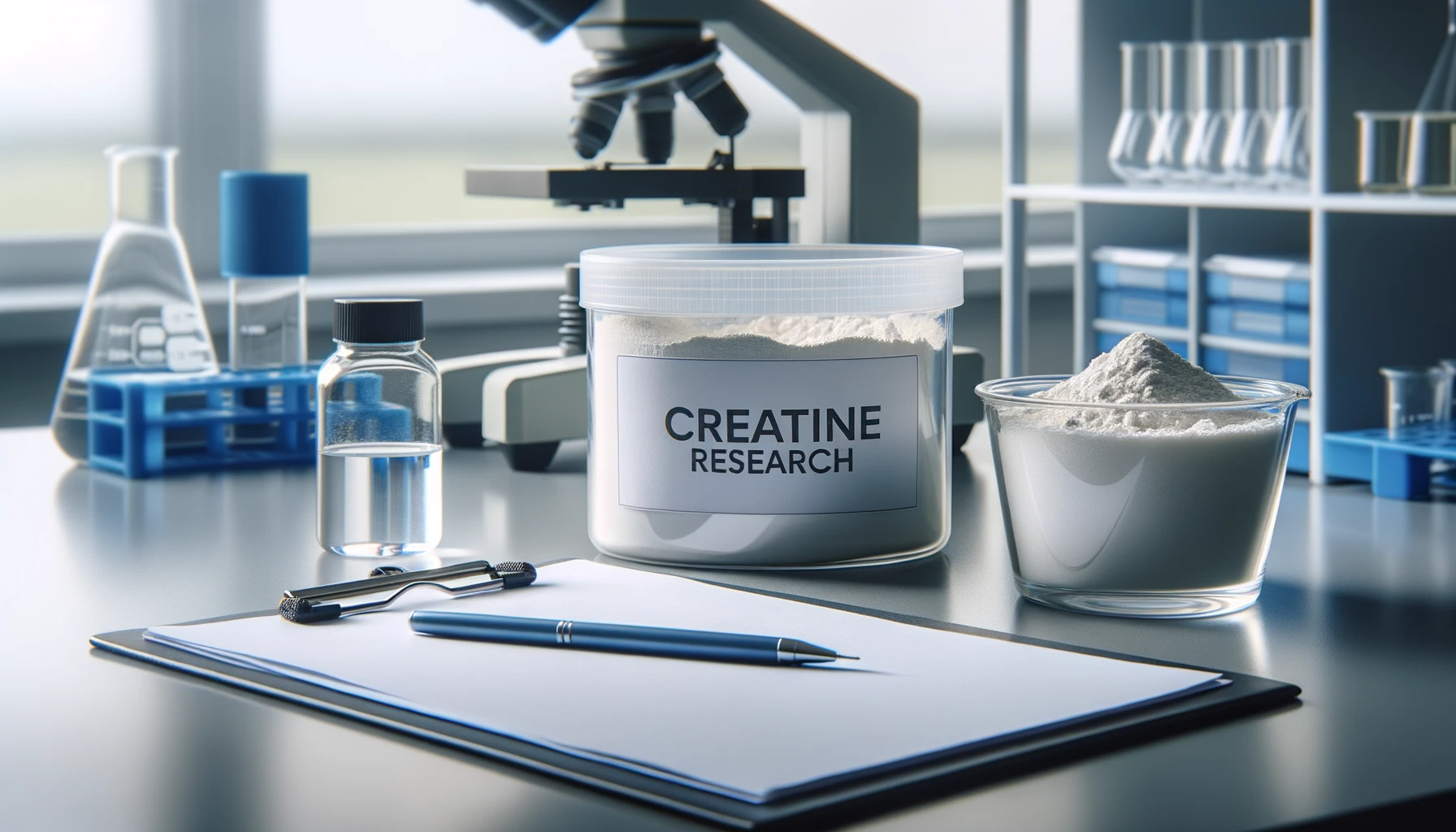
Let's clear the air: Creatine is not a steroid.
It's a naturally occurring compound that your muscle cells use to generate energy when you're pushing those heavy weights.
Steroids, on the other hand, are synthetic substances that mimic hormones like testosterone.
They mess with your hormone receptors, but creatine doesn't play that game.
A study conducted in 2022 found that creatine and anabolic steroids have significantly different effects on fertility biomarkers.
So, there you have it.
Creatine is not a steroid, both in how it's built and works in your body.
Steroids are a class of organic compounds that share a specific molecular structure.
They include hormones like testosterone and cortisol, certain vitamins and even some medications.
Steroids function by entering a cell and activating specific genes, leading to the production of proteins.
This is a vastly different mechanism of action compared to creatine, which primarily functions in cellular energy metabolism.

Anabolic steroids, the type most commonly associated with athletic performance, are synthetic versions of testosterone.
They are designed to mimic the muscle-building effects of this male sex hormone.
When ingested, anabolic steroids bind to hormone receptors in the body, triggering changes at a cellular level that can result in increased muscle mass, among other effects.
Anabolic steroids are known to enhance athletic performance, but they come with a host of side effects.
These can range from acne and hair loss to more severe issues like liver disease and cardiovascular problems.
Unlike creatine, steroids can provide an unfair advantage in athletic competitions, which is why they are banned in most sports.
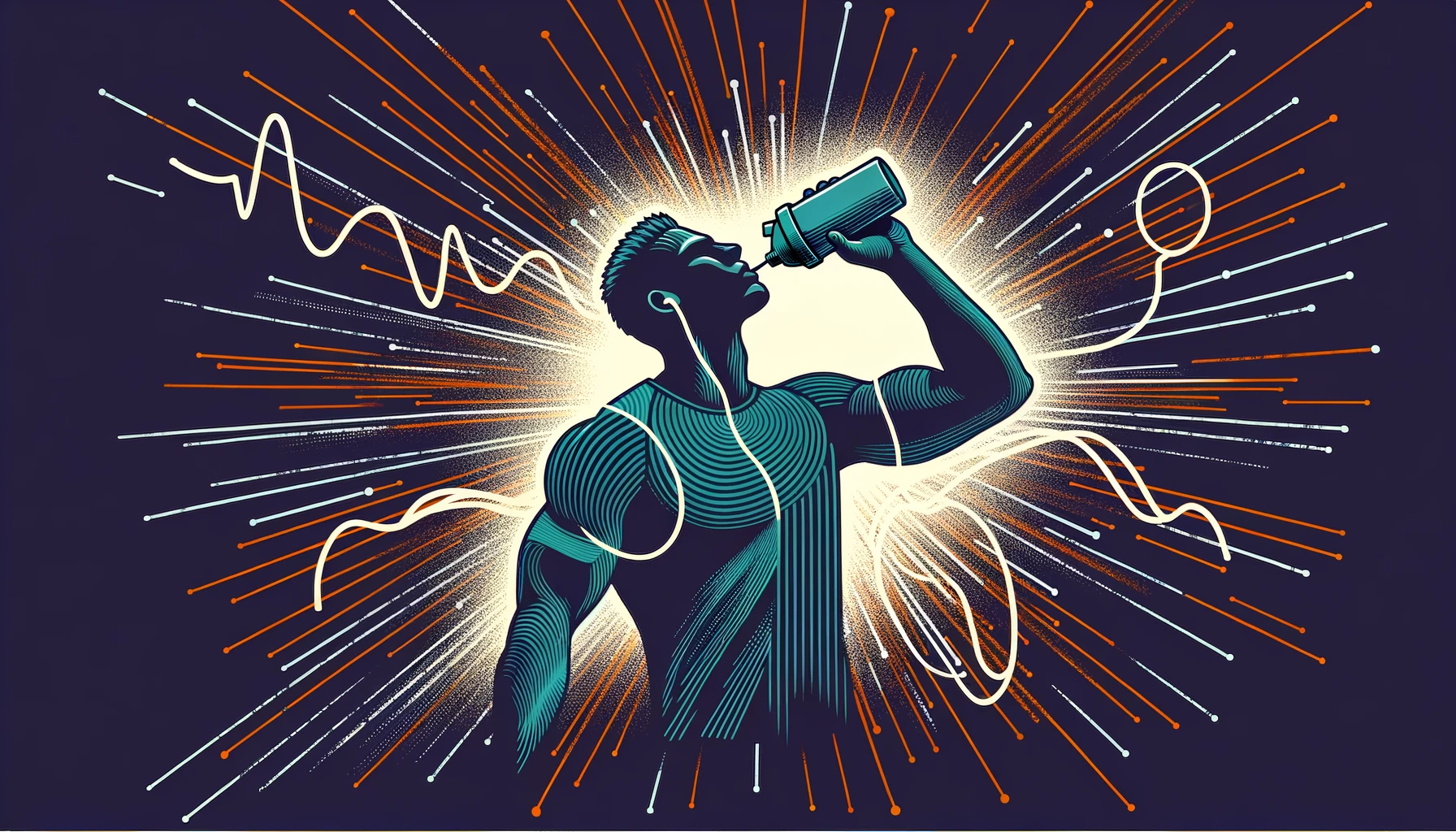
Anabolic steroids are controlled substances in many countries, including the United States.
Possession or distribution without a prescription is illegal and can result in significant legal repercussions.
Creatine, on the other hand, is available over the counter and is not subject to such regulations.
The use of anabolic steroids raises ethical questions, especially in competitive sports.
They provide an unfair advantage and can harm the user's health in the long run.
Creatine does not fall into this category.
It's a supplement that simply helps you maximize your natural abilities.
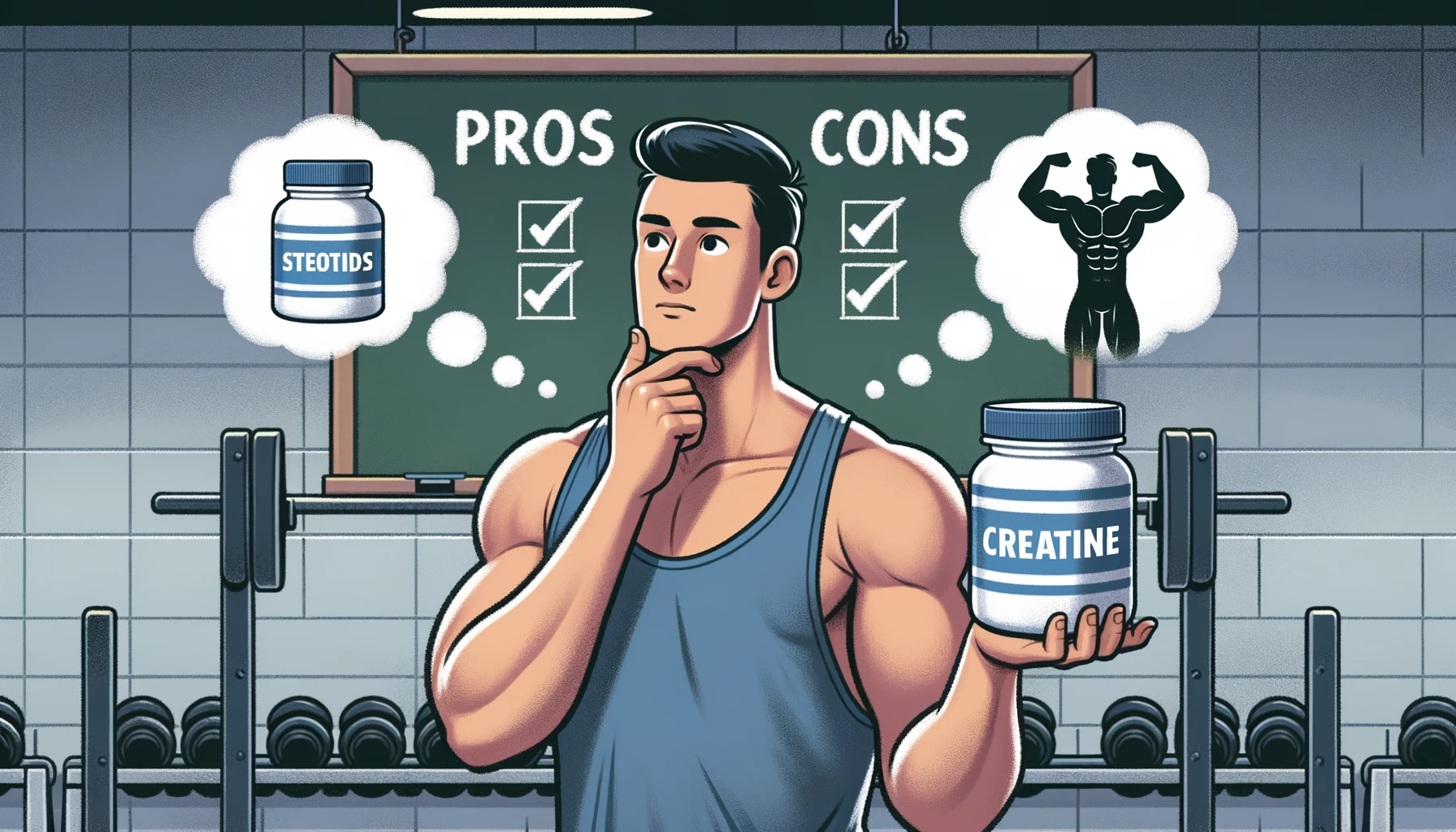
It's worth noting that not all steroids are bad.
Corticosteroids, for example, are used in medicine to treat conditions like asthma and arthritis.
These are different from anabolic steroids and have a different set of effects and side effects.
When it comes to muscle gains, both steroids and creatine are often mentioned.
But they're as different as night and day.
Let's break down how each works, what they do for your gains, and how they differ.
Steroids are synthetic compounds that mimic hormones like testosterone.
They enter your cells and activate specific genes.
This leads to the production of proteins that help in muscle growth and repair.
Steroids can give you rapid muscle gains, but they come with a host of side effects like liver damage and hormonal imbalances.
Creatine is a natural compound found in your muscles.
It helps produce ATP, which is the energy currency of your cells.
When lifting heavy or sprinting, creatine gives you that extra push.
It can help you lift more and sprint faster, which over time can lead to muscle gains.
Steroids speed up protein synthesis, leading to rapid muscle growth.
But they can also lead to water retention, giving the illusion of even bigger gains.
Creatine, on the other hand, helps you perform better in the gym.
The better you perform, the more you can lift, and the more muscle you can gain.
So, whether it's steroids or creatine, each has its way of helping you gain muscle.
But they're different in how they work, their side effects, and their legality.
Choose wisely.

These claims are not just anecdotal; they're supported by a wealth of scientific evidence.
Research has demonstrated that even vegetarians, who often have lower creatine levels, can see significant improvements in their physical performance.
Another study involving older adults found that creatine supplementation led to gains in both muscle mass and strength.
If you're still on the fence, let me put your mind at ease.
A comprehensive study found that even individuals with pre-existing muscle conditions tolerated creatine well, with no adverse effects.
Another recent study went so far as to suggest that creatine's benefits are not just for athletes but can be reaped by the general population across various life stages.
So, with all this information, are you ready to incorporate creatine into your wellness routine?
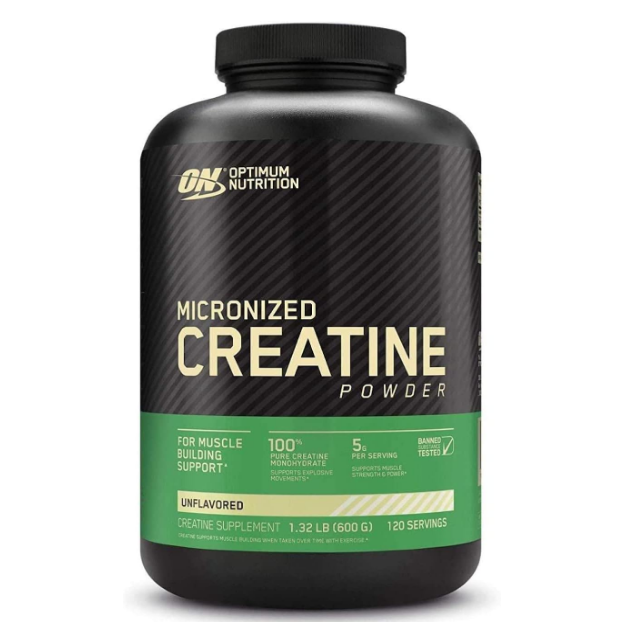
Creatine Monohydrate is the most well-researched form of creatine, which you'll often see in scientific studies.
It's been proven effective in increasing muscle mass, strength, and exercise performance.
If you're looking for a reliable and effective form of creatine, Monohydrate is the way to go.
Research shows its effectiveness is well-documented and reliable.
It's also often recommended for those who are new to creatine supplementation.
Creatine Ethyl Ester is often marketed for its high solubility.
It mixes well with water, making it a convenient option for those who dislike the residue common with Monohydrate.
Although it's easy to mix, studies indicate it's less effective than Monohydrate in increasing muscle creatine levels.
So, you might be sacrificing effectiveness for convenience here.
Buffered Creatine, also known as Kre-Alkalyn, is designed to have a higher pH level.
The idea is that this makes it more stable and reduces its conversion to creatinine, a waste product.
While increased stability sounds appealing, research has yet to conclusively prove that it's more effective than Monohydrate.
So, it might not be worth the extra cost.
Creatine HCL is highly soluble in water, which means you need a smaller dose compared to Monohydrate.
This can be a selling point for those who prefer taking smaller amounts.
While the lower dosage and high solubility are appealing, studies are still ongoing to determine its long-term effectiveness compared to Monohydrate.
When it comes to the most reliable form of creatine, Monohydrate takes the cake.
A comprehensive meta-analysis supports its efficacy in improving muscle strength and power.
So, if you're looking for proven results, Monohydrate is your best bet.
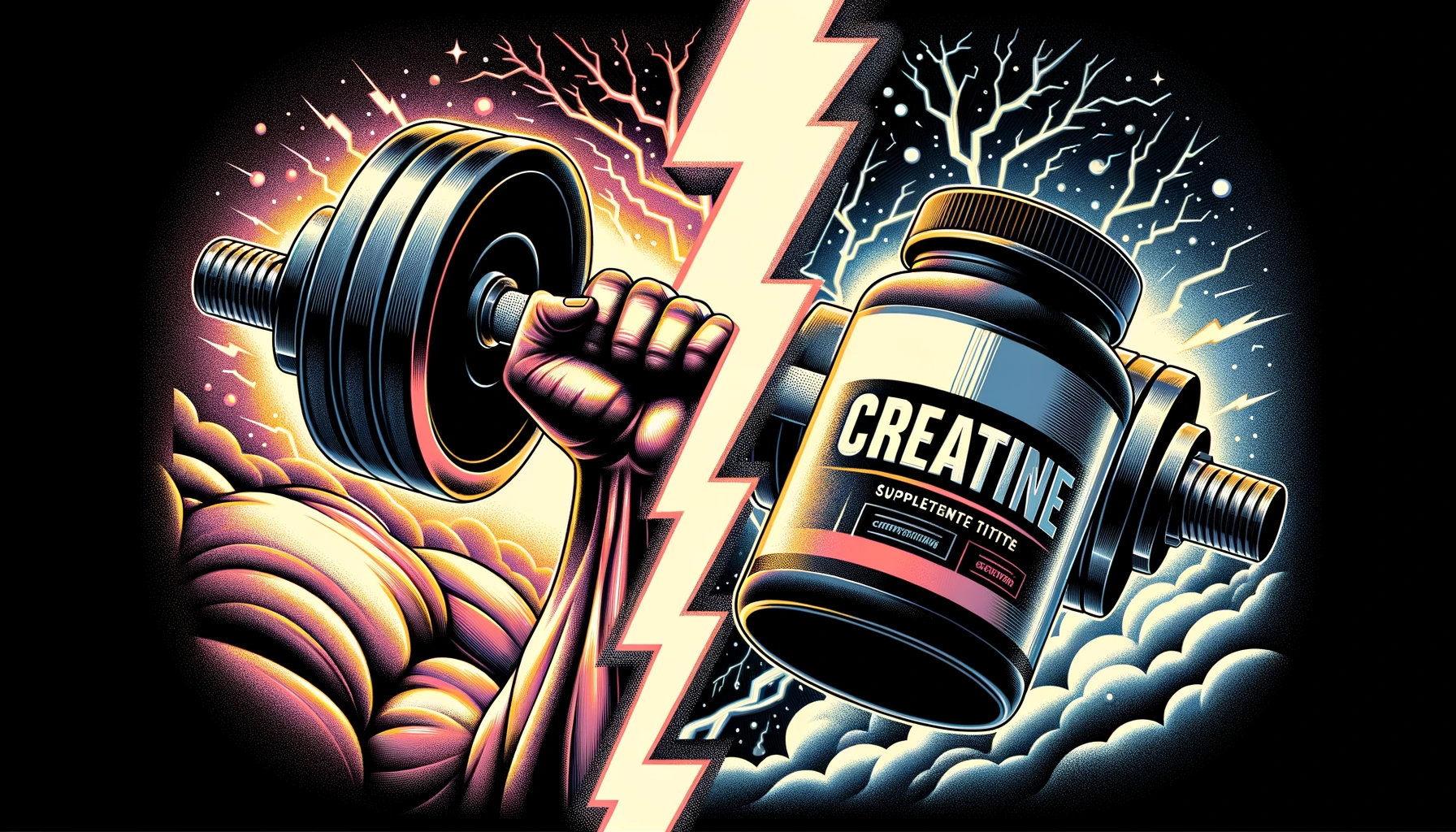
Is Creatine Considered a Steroid?
No, creatine is not a steroid. It's a naturally occurring compound that helps your muscles produce energy during high-intensity exercise. Steroids, on the other hand, are synthetic substances that mimic hormones like testosterone.
Is Creatine Safe to Use?
Yes, creatine is generally considered safe when used as directed. Numerous studies have shown that it's non-toxic and has no serious side effects when taken in recommended doses.
How Much Creatine Should I Take?
The commonly recommended dosage is 5 grams per day. However, it's always best to consult a healthcare provider for personalized advice.
Can I Take Creatine and Pre-Workout Together?
Yes, you can take creatine and pre-workout together, but it's essential to check the ingredients in your pre-workout to ensure it doesn't already contain creatine.
Does Creatine Make You Gain Weight?
Creatine can lead to weight gain due to increased water retention in the muscles. This is usually a temporary change and not a gain in fat mass.
Is Creatine Only for Bodybuilders?
No, creatine can benefit various athletes, including runners, swimmers, and team sport athletes, by improving strength, power, and performance.
Does Creatine Affect Kidneys?
There's no conclusive evidence to suggest that creatine adversely affects kidney function in healthy individuals. However, those with pre-existing kidney issues should consult a healthcare provider.
Can I Take Creatine on Rest Days?
Yes, taking creatine on rest days can help maintain elevated muscle creatine stores, which may benefit your next workout.
Does Creatine Expire?
Creatine does have a shelf life, usually around two years. Always check the expiration date on the packaging.
Is Creatine Vegan?
Most creatine supplements are synthetic and not derived from animal products, making them suitable for vegans.
For those diving deeper into the world of fitness supplements, here are some valuable resources to guide you:
Creatine and steroids are fundamentally different in structure, function, and impact on athletic performance.
While creatine is a natural supplement that aids in energy production, steroids are hormonal compounds that can significantly alter physiology and provide an unfair advantage in sports.
Useful Links
 About FitFrek
About FitFrekFitFrek operates as an independent platform, offering comprehensive workouts, programs, routines, guides, and unbiased reviews to accelerate your progress. We pride ourselves on our honesty, delivering straightforward and candid insights. FitFrek does not offer medical advice, diagnosis, or treatment services.